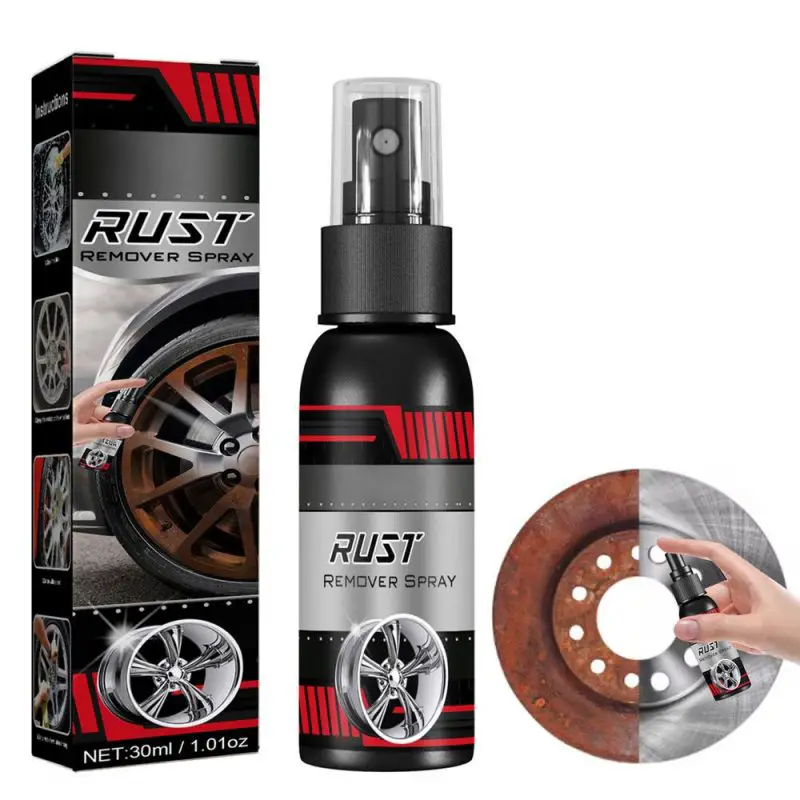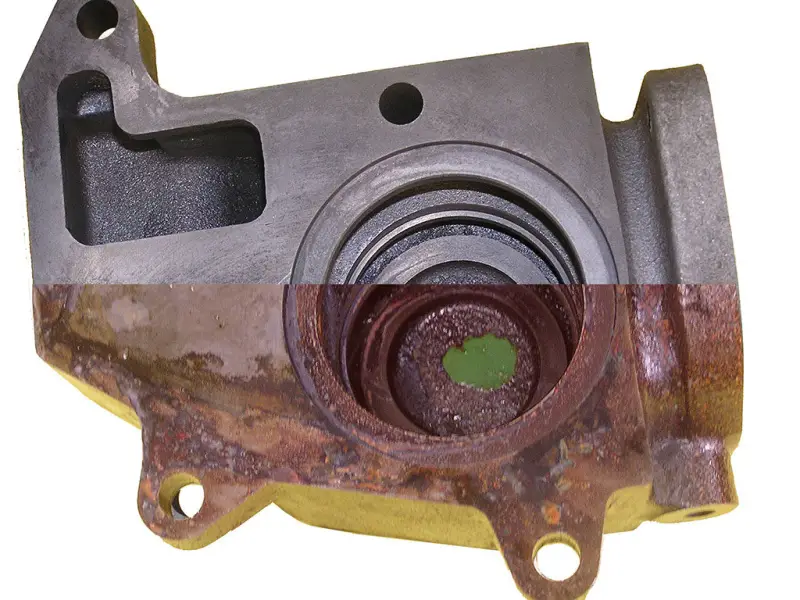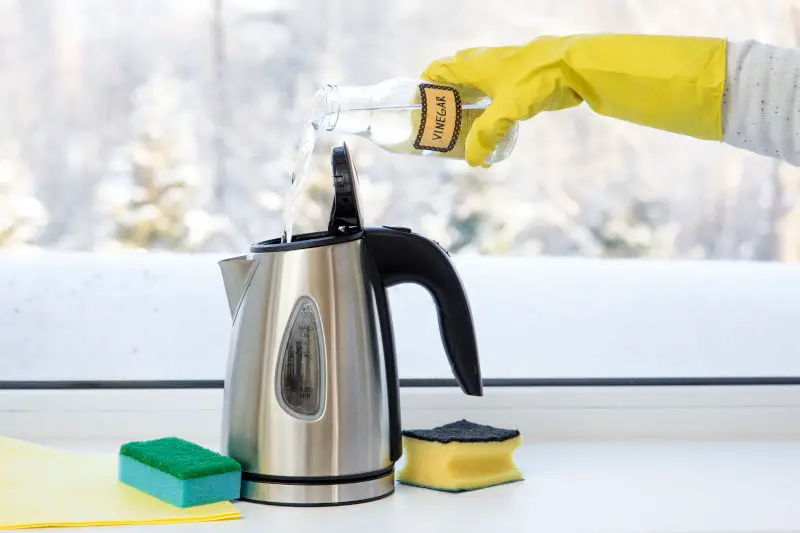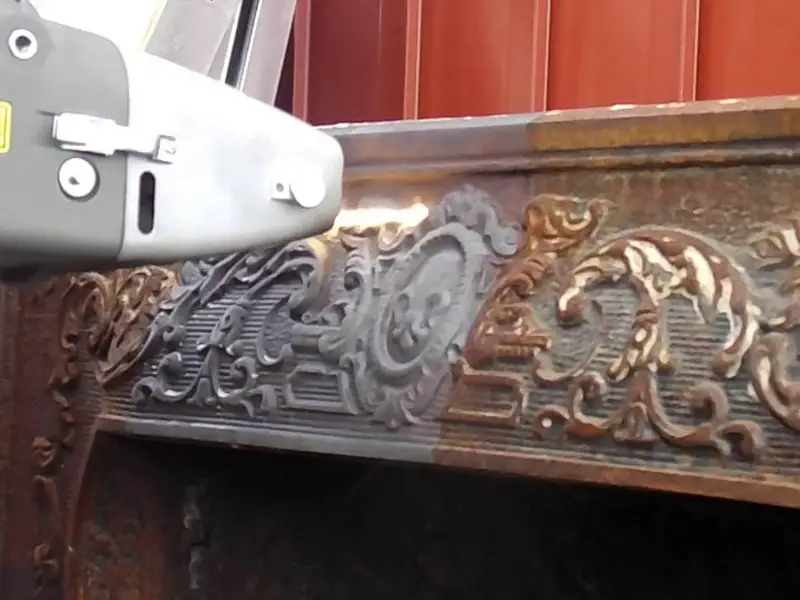Rust is a common problem for metal surfaces, whether it be on vehicles, tools, or household items. It not only detracts from the appearance but can also cause structural damage and reduce the lifespan of the affected item. Enter rust remover sprays – products that promise to eliminate rust in a quick and convenient manner. However, with so many different options on the market, it can be difficult to determine which rust remover spray is the best choice for your needs. In this blog post, we will be examining the various types of rust remover sprays available, their respective pros and cons, and how to select the right one for your particular rust problem.
Are you tired of dealing with unsightly rust on your metal surfaces? Do you want to restore your items to their former glory without having to put in a lot of elbow grease? Then keep reading as we dive into the world of rust remover sprays and find out which one is the best solution for you.
Rust Remover Sprays
First of all, they come in a spray bottle, which makes them super convenient to use. Simply spray the affected area, wait for the recommended time, and then rinse or wipe away the rust. It’s that simple! I love that I don’t have to scrub or sand away the rust, like I would have to with other methods.
In terms of the actual rust removing power, I’ve been blown away by some of the products I’ve used. Some of the rust remover sprays are able to remove rust from even the most stubborn areas. They’re strong enough to dissolve even heavy rust buildup, yet gentle enough that they don’t damage the underlying metal.
One thing to keep in mind is that not all rust remover sprays are created equal. Some are better suited for certain types of metal than others, so it’s important to choose the right one for your needs.
Different Methods for Removing Rust
- Rust remover sprays: Rust remover sprays are chemical products that are applied directly to the rust, breaking down the rust into smaller particles and making it easier to remove.
- Sanding or abrasive blasting: Sanding or abrasive blasting involves using sandpaper or an abrasive blasting material to physically remove the rust. This method is best for removing rust from small areas or surface rust.
- Electrolysis: Electrolysis is a process that uses electrical current to remove rust from metal surfaces. This method is effective, but requires specialized equipment and knowledge to use.
- Conversion coatings: Conversion coatings are chemical treatments that are applied to metal surfaces to prevent rust from forming. This method is best used as a preventative measure, rather than a solution for existing rust.
| Method | Pros | Cons |
|---|---|---|
| Rust remover sprays | Easy to use, effective, no specialized equipment needed | Chemical residues may remain on the surface, may not be safe for use on all surfaces |
| Sanding or abrasive blasting | Physical removal of rust, no chemicals involved | Time-consuming, may cause damage to the metal surface |
| Electrolysis | Effective, thorough removal of rust | Requires specialized equipment and knowledge, can be time-consuming |
| Conversion coatings | Prevents future rust, no chemicals involved | Not a solution for existing rust, may require multiple coats for full protection |
Rust remover sprays are a convenient and effective method for removing rust from metal surfaces. However, there are other methods available, each with its own pros and cons. When choosing a method for removing rust, it is important to consider the size and extent of the rust, as well as the type of metal surface that is affected. By making an informed decision, you can ensure that your metal surfaces are restored to their former glory and protected from future rust.

Equipment for Using Rust Remover Sprays
| Equipment | Description |
|---|---|
| Rust Remover Spray | The main product used to remove rust. It is available in various forms, including liquids, gels, and sprays. |
| Gloves | To protect your hands from harsh chemicals and possible skin irritation. |
| Face Mask | To protect your breathing from fumes and protect against inhaling any harmful substances. |
| Eye Protection | To protect your eyes from fumes and splatters. |
| Protective Clothing | To protect your skin and clothing from harsh chemicals and splatters. |
| Scraper or Brush | For removing loose rust and applying the rust remover spray. |
| Bucket | To mix the chemical rust remover with water or to store the object being treated. |
| Plastic Sheet | To protect flooring or other surfaces from splatters or spills. |
| Electrolysis Tank | For the electrolysis method, an electrolysis tank is needed to hold the solution and apply the electrical current. |
| Power Supply | For the electrolysis method, a power supply is required to provide the electrical current to the solution. |
Note: It is important to always follow the manufacturer’s instructions and safety precautions when using rust remover sprays and associated equipment.

Step-by-Step Guide on Using Rust Remover Sprays
- Prepare the workspace: Choose a well-ventilated area, lay down a plastic sheet to protect flooring or other surfaces, and put on protective gloves, a face mask, and eye protection.
- Clean the surface: Remove any loose rust with a scraper or brush and clean the surface of any dirt, dust, or grease.
- Apply the rust remover: Follow the instructions on the product label, spray or pour the rust remover onto the rusted surface, making sure to cover it thoroughly.
- Wait for the rust remover to work: The amount of time the rust remover needs to work will vary depending on the product and the extent of the rust. Check the instructions on the product label for the recommended waiting time.
- Rinse the surface: Once the waiting time is up, rinse the surface thoroughly with water to remove any residual rust remover.
- Check for rust: If the rust has not been fully removed, reapply the rust remover and repeat the process. If the rust has been removed, proceed to the next step.
- Dry the surface: Thoroughly dry the surface with a clean cloth.
- Apply a rust inhibitor: To prevent rust from returning, apply a rust inhibitor to the surface.
Note: Always follow the manufacturer’s instructions and safety precautions when using rust remover sprays. Different products may have slightly different application and waiting times, so it’s important to read the label carefully before using.
FAQ
What are rust remover sprays?
Rust remover sprays are chemical products used to remove rust from metal surfaces. They are available in different forms, including liquids, gels, and sprays, and are designed to penetrate rust and dissolve it.
Are rust remover sprays safe to use?
When used as directed and with the appropriate safety measures in place, rust remover sprays are generally safe to use. However, it is important to follow the manufacturer’s instructions and safety precautions, such as wearing gloves and eye protection and working in a well-ventilated area.
Can rust remover sprays be used on painted surfaces?
It is generally not recommended to use rust remover sprays on painted surfaces, as they may damage or remove the paint. If rust is present under the paint, it is best to remove the paint, treat the rust, and then repaint the surface.
How long does it take for a rust remover spray to work?
The amount of time it takes for a rust remover spray to work will vary depending on the product and the extent of the rust. Check the instructions on the product label for the recommended waiting time, which can range from a few minutes to several hours.
Can rust remover sprays be used on rusty tools?
Yes, rust remover sprays can be used on rusty tools. Simply clean the tool, apply the rust remover spray, and wait for the recommended amount of time before rinsing and drying the tool.
What are the alternatives to rust remover sprays?
There are several alternative methods for removing rust, including sandblasting, electrolysis, and wire brushing. Each method has its own advantages and disadvantages, and it is important to choose the method that is best suited to your needs and the extent of the rust.
Can rust remover sprays be used on rusty car parts?
Yes, rust remover sprays can be used on rusty car parts, such as undercarriages, fenders, and other metal surfaces. Make sure to follow the manufacturer’s instructions and safety precautions, and choose a product that is suitable for use on automotive surfaces.



Leave a Reply